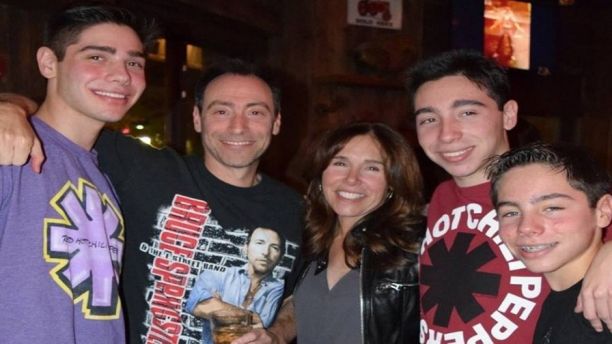Costa Rica News – In the aftermath of a Costa Rican plane crash that killed 10 Americans this week, the former head of the National Transportation Safety Board has a stark message for U.S. citizens who think about signing up for such flights: Don’t do it.
“These private tourist flights do not have the type of oversight and regulation that we have with commercial aviation in the United States,” James Hall said in a telephone interview with Fox News. “The average tourist is not going to be able to make a determination about the safety of these flights,” he added.
Backroads, a Berkeley, Calif.–based travel company, booked the flight on Nature Air, a domestic carrier, for the Steinberg and Weiss families. In a statement on their website, the company said it has been “running active travel adventures in Costa Rica for more than 25 years,” and it expressed its condolences over the deaths. A spokeswoman from Backroads declined to comment further when contacted Friday.
Other U.S.-based adventure travel companies, such as Austin Adventures, also use Nature Air in vacation packages for American tourists in Costa Rica.
At 12:10 p.m. on New Year’s Eve, the Cessna plane operated by Nature Air took off from the runway at Punta Islita Airport and crashed into a mountain moments later, killing 10 Americans and two Costa Rican pilots. On board the Cessna 208B Grand Caravan were Bruce and Irene Steinberg of Scarsdale, N.Y., and their three sons, as well as four members of the Weiss family from Belleair, Fla., and their tour guide, Amanda Geissler.
While the cause of the crash is under investigation, Costa Rican authorities said strong winds or mechanical problems most likely brought the single-engine turboprop plane down as it left the Pacific Coast for San Jose, the capital. The NTSB told Fox News two of its investigators are assisting the Costa Ricans with the probe, as well as two representatives from Cessna and the Federal Aviation Administration.
The crash — Nature Air’s second since September — underscores major concerns over the safety and regulation of such flights, popular among adventure-seeking tourists visiting secluded beaches and remote parts of the world, according to U.S. aviation experts.
“When we go to other countries there is very little transparency when it comes to the type of service we’re getting and it’s really hard for anyone in that country or outsiders who don’t speak the language to do any research,” said Deborah Hersman, a former board member of the NTSB who served as its 12th chairman.
“The statement that ignorance is bliss doesn’t apply here,” she said.
Among the chief concerns raised by Hersman and others are pilot experience, the safety record of the company and the age and maintenance of the aircraft.
U.S. officials stressed the importance of annual simulator programs for pilots hired for such tourism flights — meaning they must undergo training courses at a facility where they can fly in a simulator and practice emergency procedures.
Aviation experts say it’s also important to know if the operator is using a TBO — Time Before Overhaul — extension program on their engines. Most engines need to be disassembled, inspected and have many of its components replaced after 3,600 hours of engine operation.
“We have seen a significantly higher percentage of engine failures that are on TBO extension programs,” Ladd Sanger, a prominent Texas-based aviation attorney, told Fox News.
“I’ve seen them fail at around 5,400 and 6,000 miles,” said Sanger, who has represented a number of families involved in single-engine tourist crashes in other countries, including one with Nature Air in 2005.
Sanger explained that high frequency flights in salt water, corrosive environments, like Costa Rica, “put a lot of wear and tear and stress on the engine. Prudent operators are not doing TBO extensions on their engines,” he said.
For many travelers, flights on regional airlines are arranged by resorts, cruise lines or travel companies — making it difficult for American tourists to check safety records or investigate the regulation of such airlines. In September, an American and another passenger died when a single-engine Cessna operated by Nature Air crashed in a river in Guanacaste.
A Nature Air spokesman did not respond to an interview request.
Dan Austin, president Austin Adventures, said Friday that his company and others are “obligated and its part of our DNA to properly vet all transportation and that includes everything from buses, ships and planes.”
“At this point it looks like a horrible accident,” Austin said of the crash. “Nature Air has traditionally been a very quality organization. They take 100,000 passengers a year. And Backroads is a quality company as well.”
Still, Sanger and others remain skeptical over tourism airlines that do not meet the same standards as those in the U.S.
“It’s very hard for the consumer to be able to vet and understand the pilot training of any of these operators,’ said Sanger. “Even as a commercial licensed pilot, I don’t have access to such information – how they train their pilots and what kinds of maintenance practices they use.”
“You need to understand that your risk of getting on a single engine aircraft being operated in a third world country is significantly higher than flying on a commercial airliner with two jet engines and two professional pilots in the United States,” he said.
By Cristina Corbin | Fox News


1 comment
Headline inaccurate: Non-Commercial implies that Nature Air was composed of private planes. Nature Air is a commercial carrier.